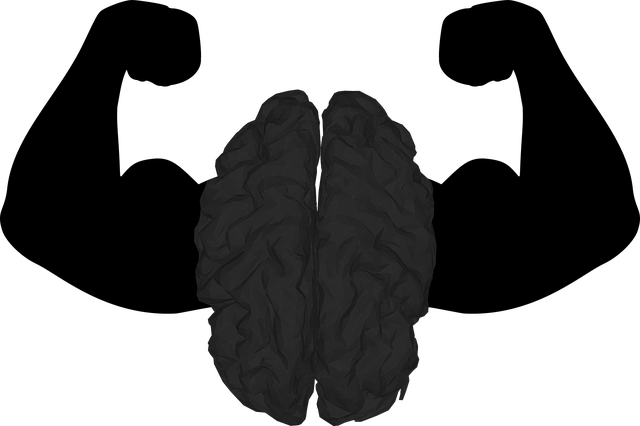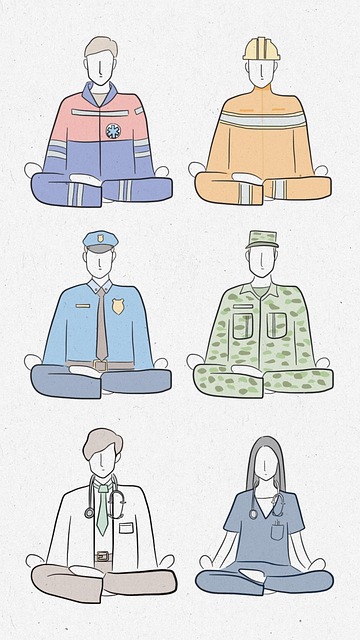Aurora Autism Spectrum Disorder (ASD) Therapy offers a community-focused approach, collaborating with therapists, educators, and local partners to create inclusive environments for individuals with ASD. This strategy includes educating professionals on the latest research, promoting conflict resolution skills, and providing holistic well-being initiatives. By engaging with non-profits, schools, and support groups, Aurora identifies community needs and designs tailored activities focused on social connections and access to therapy. Robust training for therapists, emphasizing cultural sensitivity and evidence-based practices, ensures high-quality care. Impact measurement through diverse data collection methods and advocacy for mental health policy changes further enhance the reach and effectiveness of Aurora ASD Therapy.
Community outreach programs play a vital role in enhancing access to quality care, especially for individuals with Aurora Autism Spectrum Disorder (ASD). This article explores a comprehensive approach to implementing such programs, focusing on community engagement and therapy. We delve into understanding the unique needs of those with ASD, collaborating with local organizations, designing inclusive activities, training therapists, and measuring impact. By fostering partnerships and tailoring interventions, these strategies ensure sustainable, effective Aurora ASD therapy within the community.
- Understanding Aurora Autism Spectrum Disorder Therapy: A Community Approach
- Identifying Community Needs and Collaborating with Local Organizations
- Designing Inclusive Programs: Activities and Engagement Strategies
- Training and Supporting Therapists for Effective Outreach
- Measuring Impact and Sustaining Long-Term Community Engagement
Understanding Aurora Autism Spectrum Disorder Therapy: A Community Approach

Aurora Autism Spectrum Disorder (ASD) Therapy takes a community-focused approach to support individuals with ASD and their families. This strategy recognizes that autism is a complex neurodevelopmental condition, and effective treatment requires a collaborative effort between therapists, educators, and community members. By fostering partnerships within local communities, Aurora’s program aims to create an inclusive environment where everyone plays a role in understanding and accommodating diverse needs.
This community-outreach method goes beyond traditional therapy sessions. It involves educating mental health professionals on the latest research and practices, such as risk assessment techniques for managing challenging behaviors and burnout prevention strategies to ensure long-term sustainability. Additionally, promoting conflict resolution skills among community members helps create a supportive network that enhances social interactions and communication for individuals with ASD, addressing various aspects of their overall well-being.
Identifying Community Needs and Collaborating with Local Organizations

Identifying community needs is a critical step in implementing successful outreach programs. This involves assessing the unique challenges and aspirations specific to the communities being served, especially when focusing on vulnerable populations such as those with Aurora Autism Spectrum Disorder (ASD). Engaging with local organizations, including non-profits, schools, and support groups dedicated to ASD, allows for a deeper understanding of the community’s dynamics. These collaborations ensure that outreach efforts are tailored to address pressing issues, fostering trust and participation.
By partnering with established entities in the field, such as healthcare providers offering emotional healing processes or organizations promoting cultural competency training for mental health professionals, the impact of outreach programs can be amplified. This collaborative approach also facilitates knowledge sharing and resource allocation, enhancing the overall effectiveness of initiatives aimed at improving mental health, especially among communities historically underserved by policy analysis and advocacy efforts.
Designing Inclusive Programs: Activities and Engagement Strategies

Designing inclusive community outreach programs for individuals with Aurora Autism Spectrum Disorder (ASD) requires careful consideration and tailored activities. These initiatives aim to foster social connections, promote understanding, and improve access to therapy and support services. Engaging strategies can include sensory-friendly events, interactive workshops, and peer mentoring programs that cater to diverse interests and abilities. By creating safe spaces where everyone feels welcomed, these programs encourage participation and enhance the overall well-being of the community.
Incorporating mental wellness coaching within these outreach efforts is a game-changer. Such programs can teach stress management techniques tailored to individuals with ASD, empowering them to navigate challenges effectively. Encouraging open conversations about mental health fosters resilience and promotes a sense of belonging, ultimately contributing to the development of holistic Mental Wellness Coaching Programs. This collaborative approach ensures that community outreach initiatives are not just inclusive but also transformative.
Training and Supporting Therapists for Effective Outreach

Training and supporting therapists is a cornerstone of effective community outreach for Aurora Autism Spectrum Disorder (ASD) therapy. Organizations should invest in comprehensive training programs that equip therapists with the skills to connect with diverse communities, understand cultural perspectives on autism, and tailor their approach to meet individual needs. This includes education on evidence-based practices like mindfulness meditation as burnout prevention strategies for healthcare providers.
Furthermore, fostering a culture of emotional intelligence within outreach teams is vital. Therapists should be encouraged to develop strong interpersonal skills, self-awareness, and empathy, enabling them to build trust, facilitate open communication, and create safe spaces for individuals with ASD and their families. By prioritizing both professional development and well-being through burnout prevention strategies like mindfulness meditation, community outreach programs can ensure high-quality, compassionate care reaches those who need it most effectively.
Measuring Impact and Sustaining Long-Term Community Engagement

Measuring the impact of community outreach programs is essential for understanding their effectiveness in fostering long-term engagement. Organizations like Aurora Autism Spectrum Disorder Therapy utilize various methods to assess outcomes, including pre and post-program surveys, key performance indicators (KPIs), and qualitative feedback from participants and caregivers. By analyzing these data points, they can identify areas of success and pinpoint challenges, ensuring continuous improvement.
Sustaining community engagement requires a holistic approach that goes beyond program delivery. Aurora leverages Mental Health Policy Analysis and Advocacy to influence local initiatives, raise Mental Health Awareness, and advocate for resources that support individuals with Autism Spectrum Disorder (ASD) and their families. This strategy not only enhances the reach of therapy but also builds a supportive ecosystem that promotes Anxiety Relief and overall well-being within the community over time.
Implementing community outreach programs, such as those focusing on Aurora Autism Spectrum Disorder Therapy, requires a collaborative effort between therapists, local organizations, and the community itself. By identifying needs, designing inclusive activities, training therapists, and measuring impact, these programs can foster long-term engagement and significantly enhance support for individuals with autism spectrum disorder (ASD). Embracing this community-centric approach ensures that resources are effectively utilized to create a more understanding and welcoming environment for those living with ASD.














